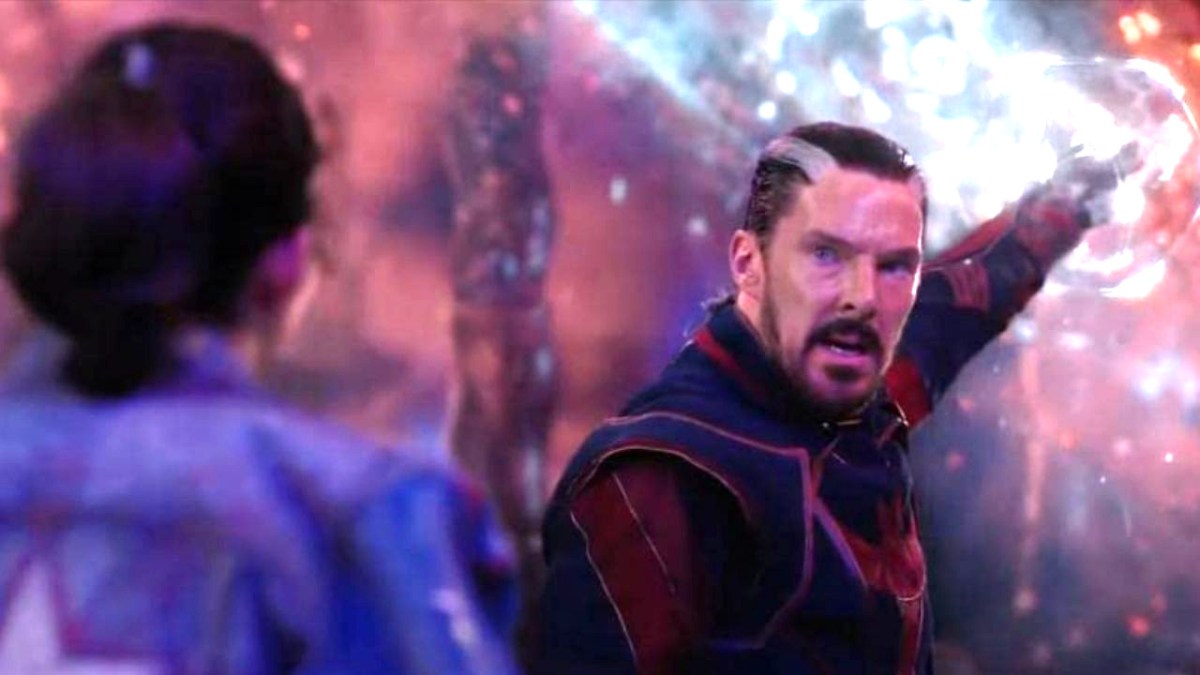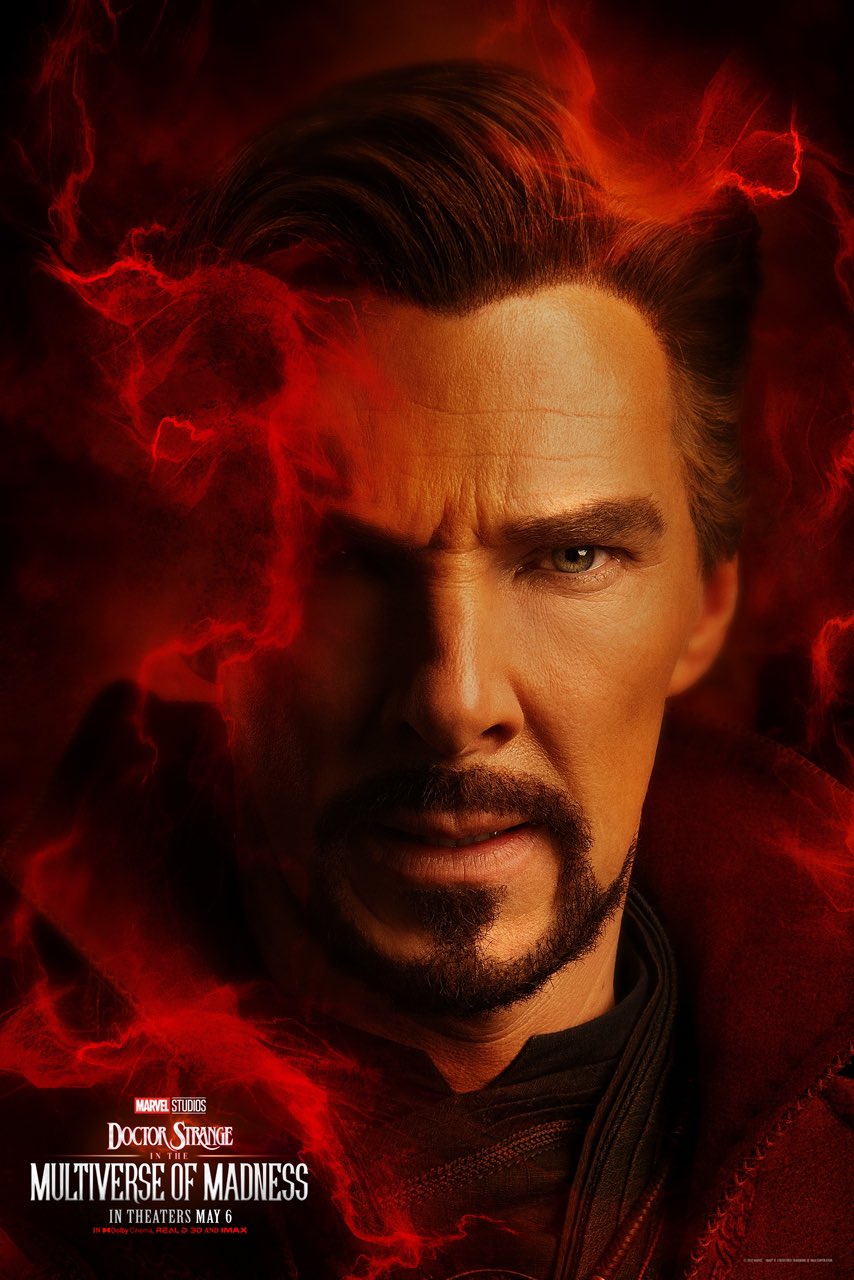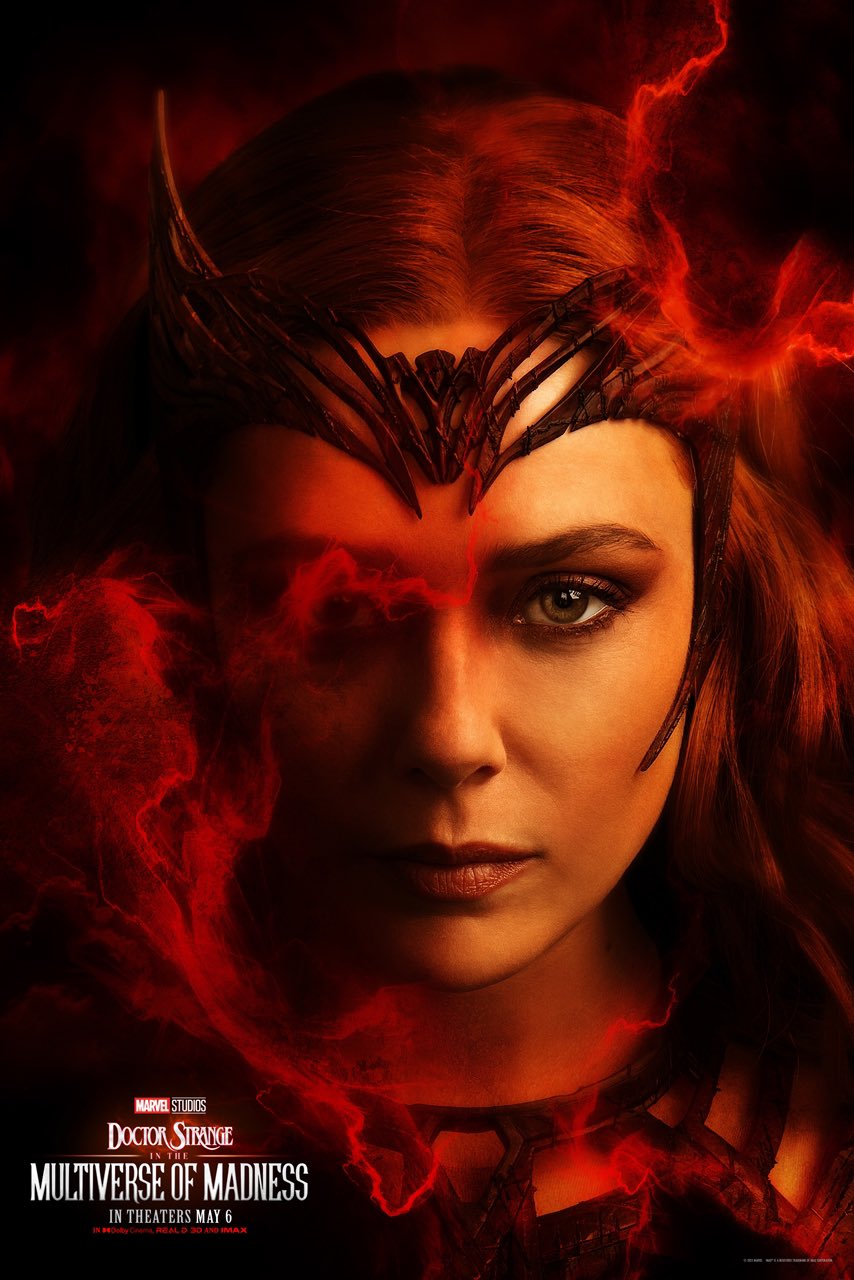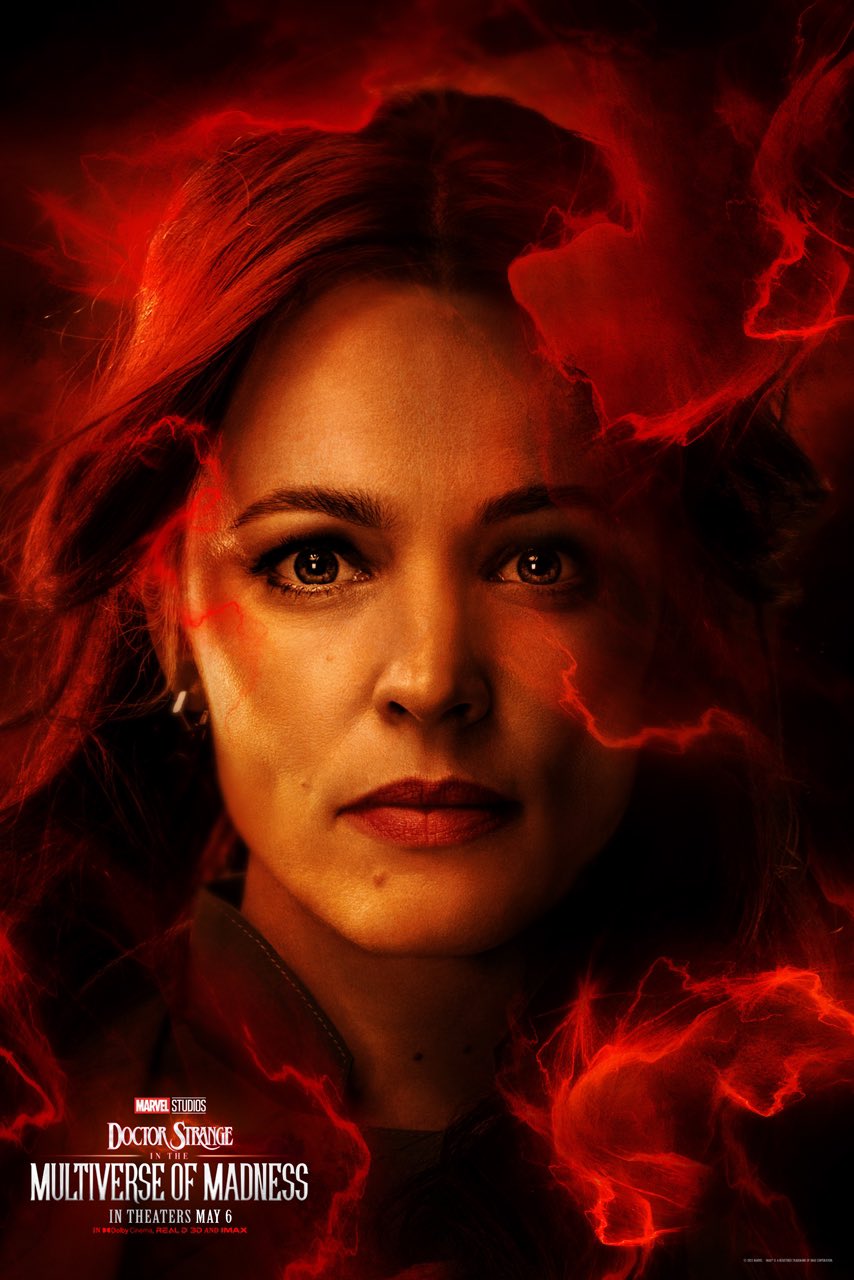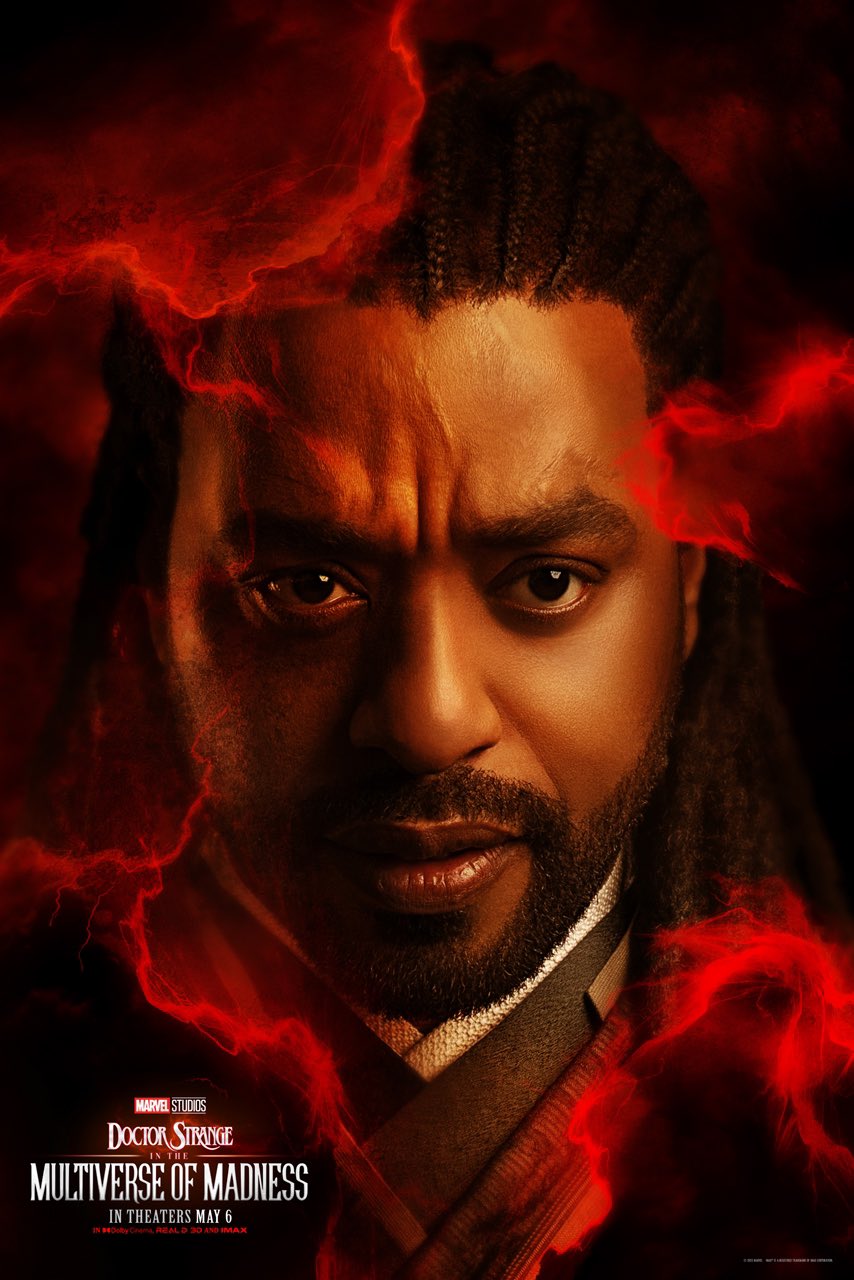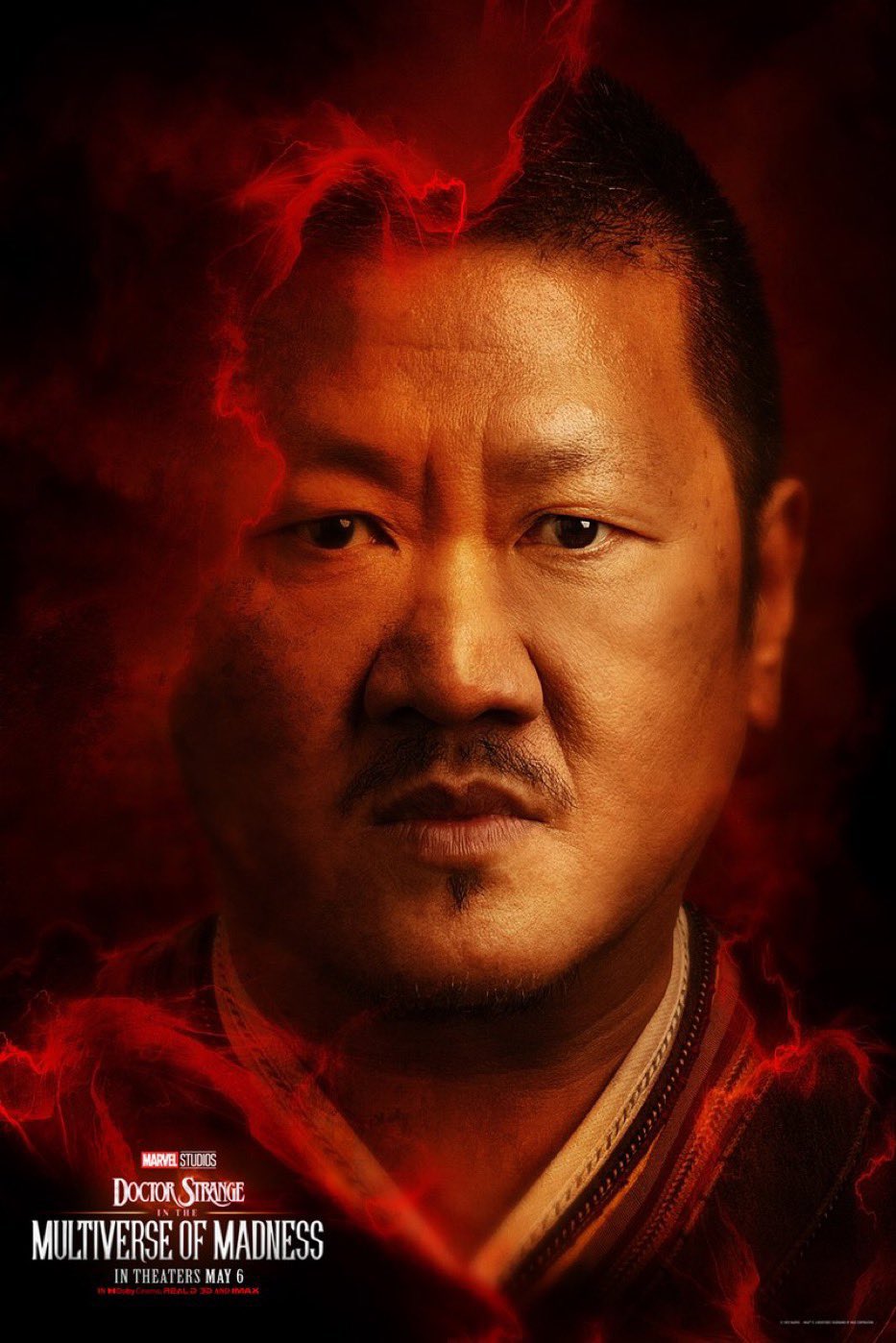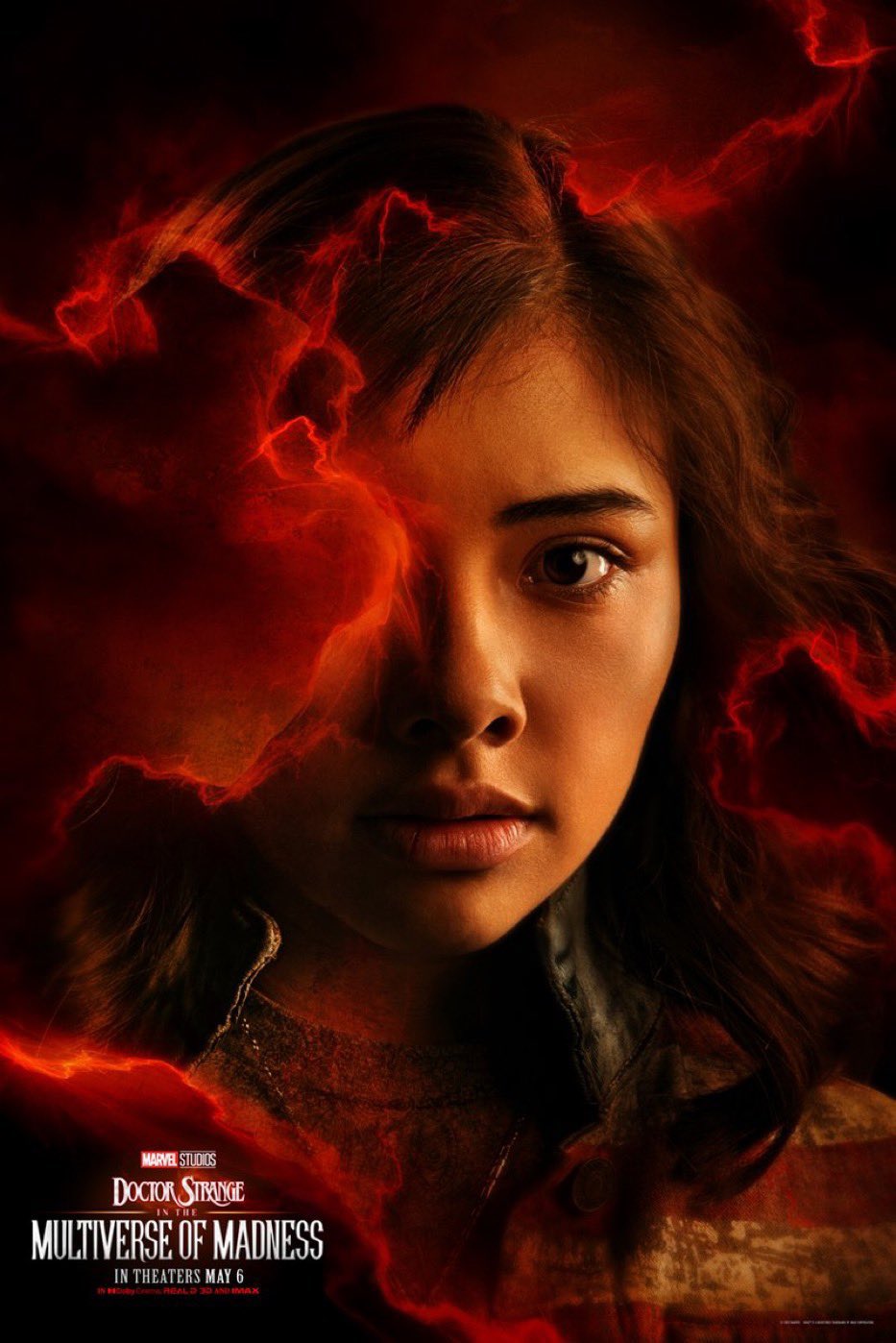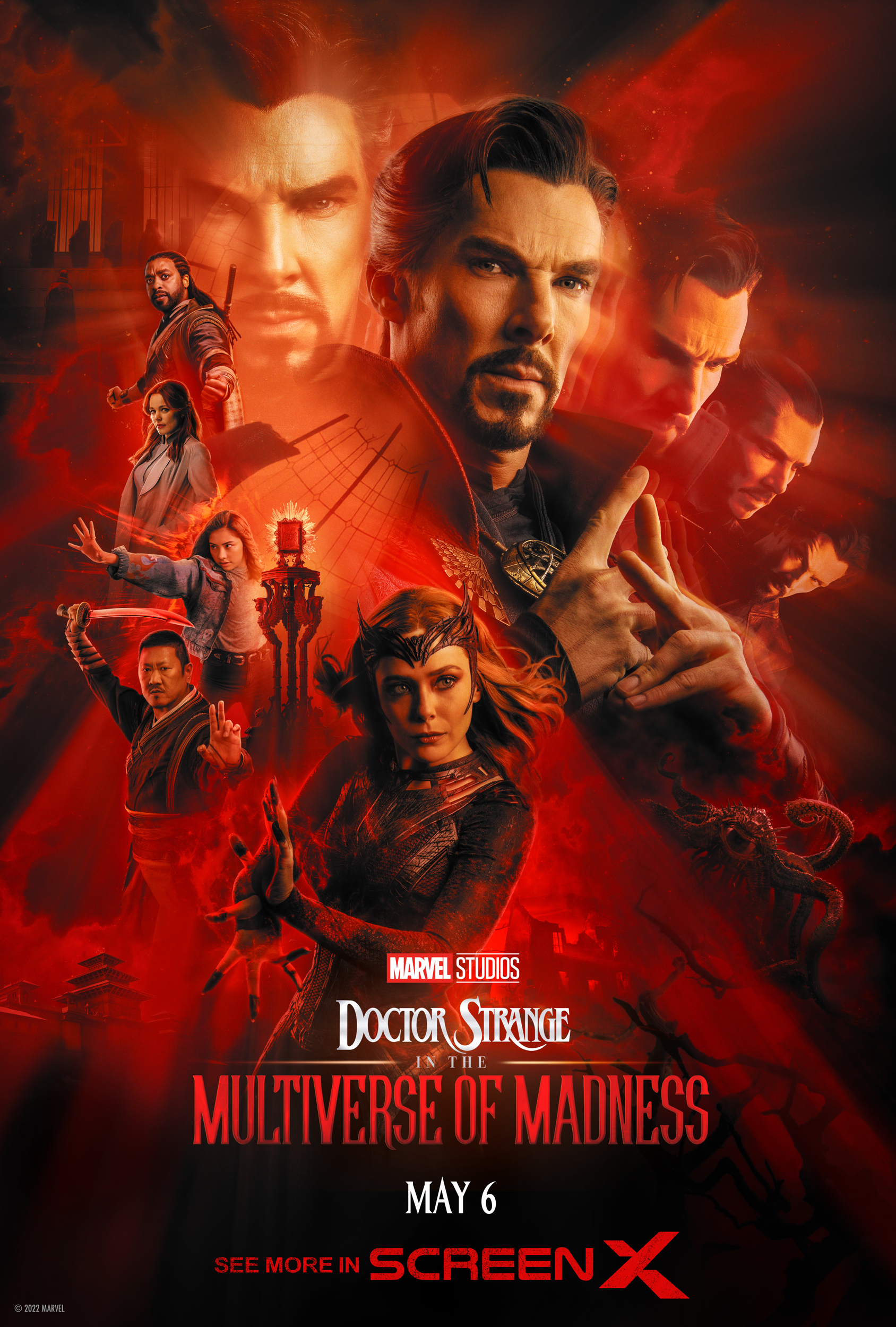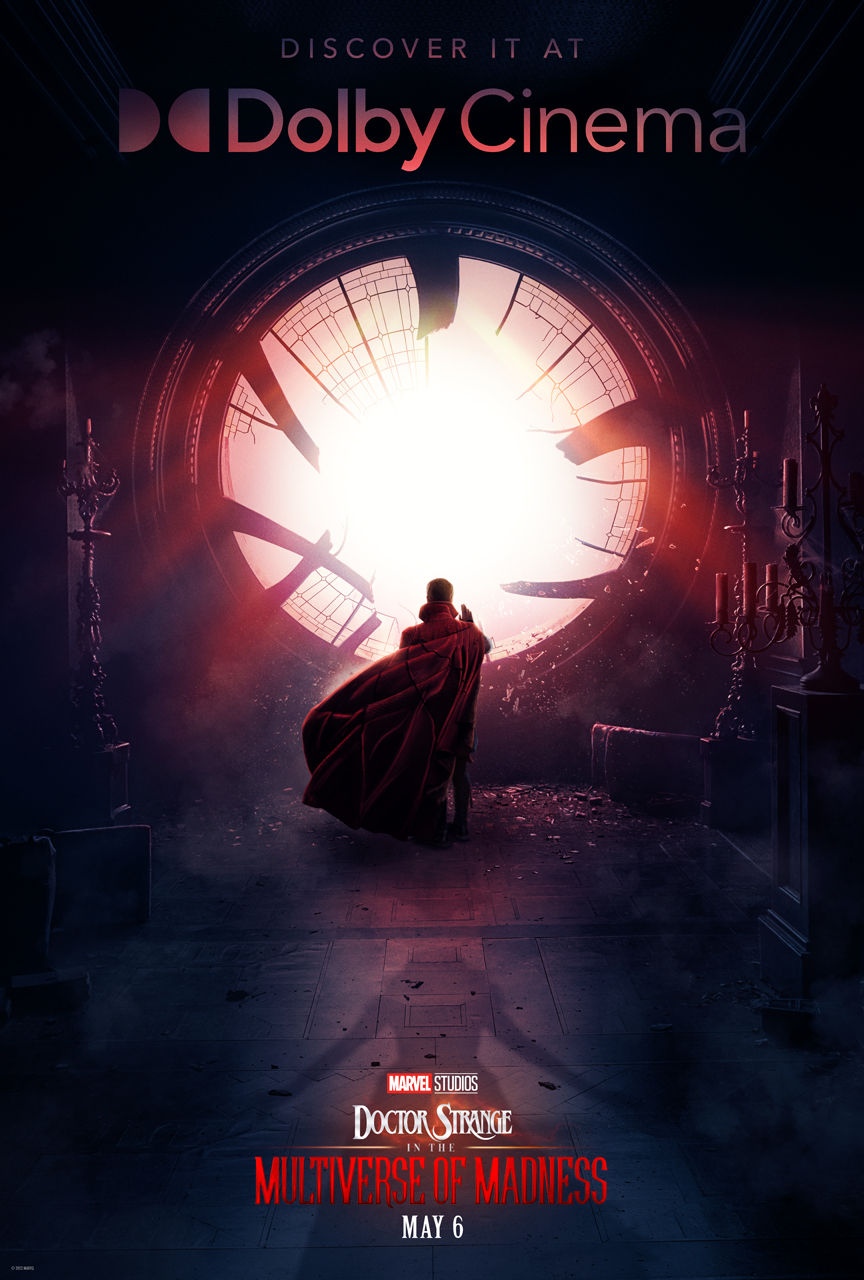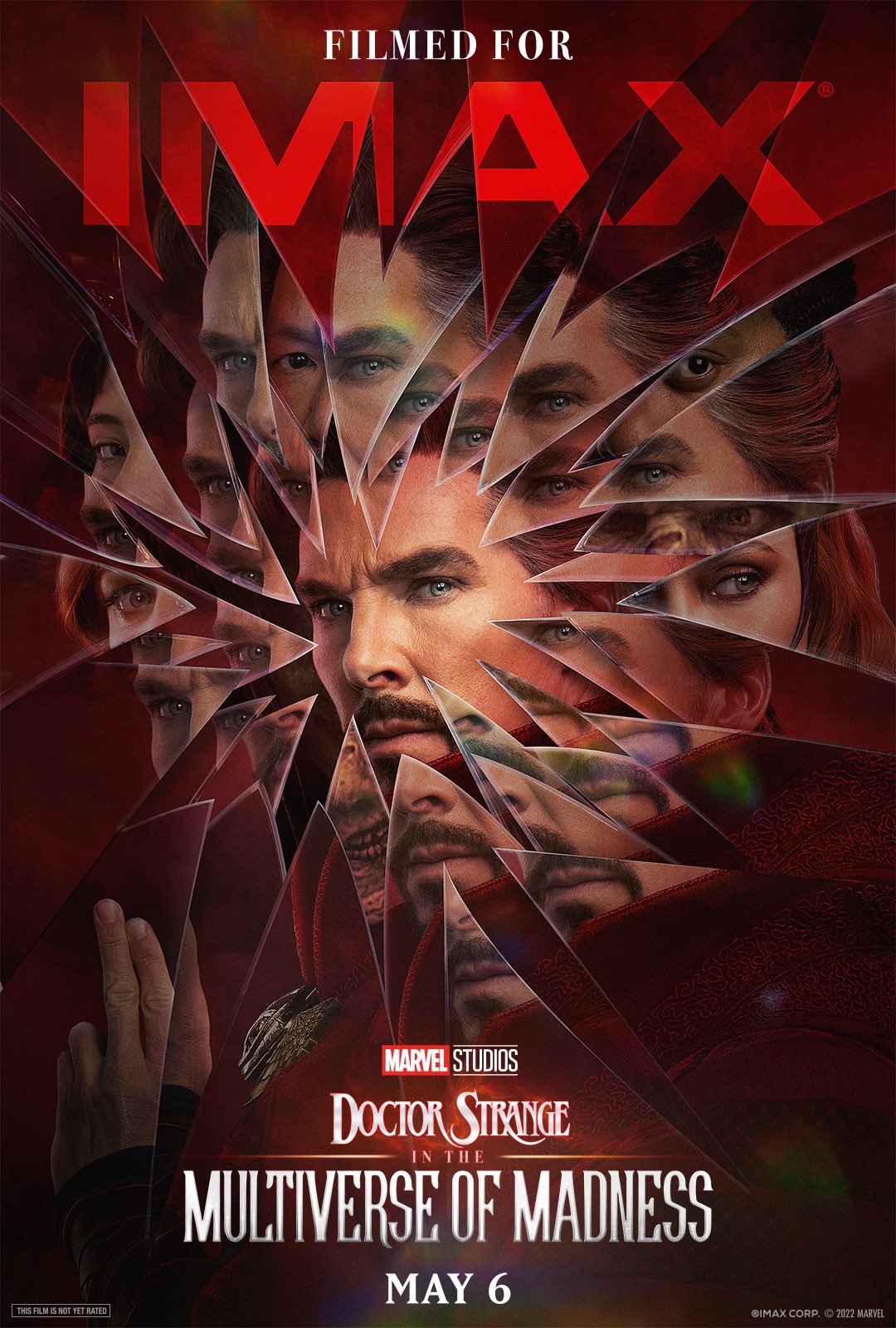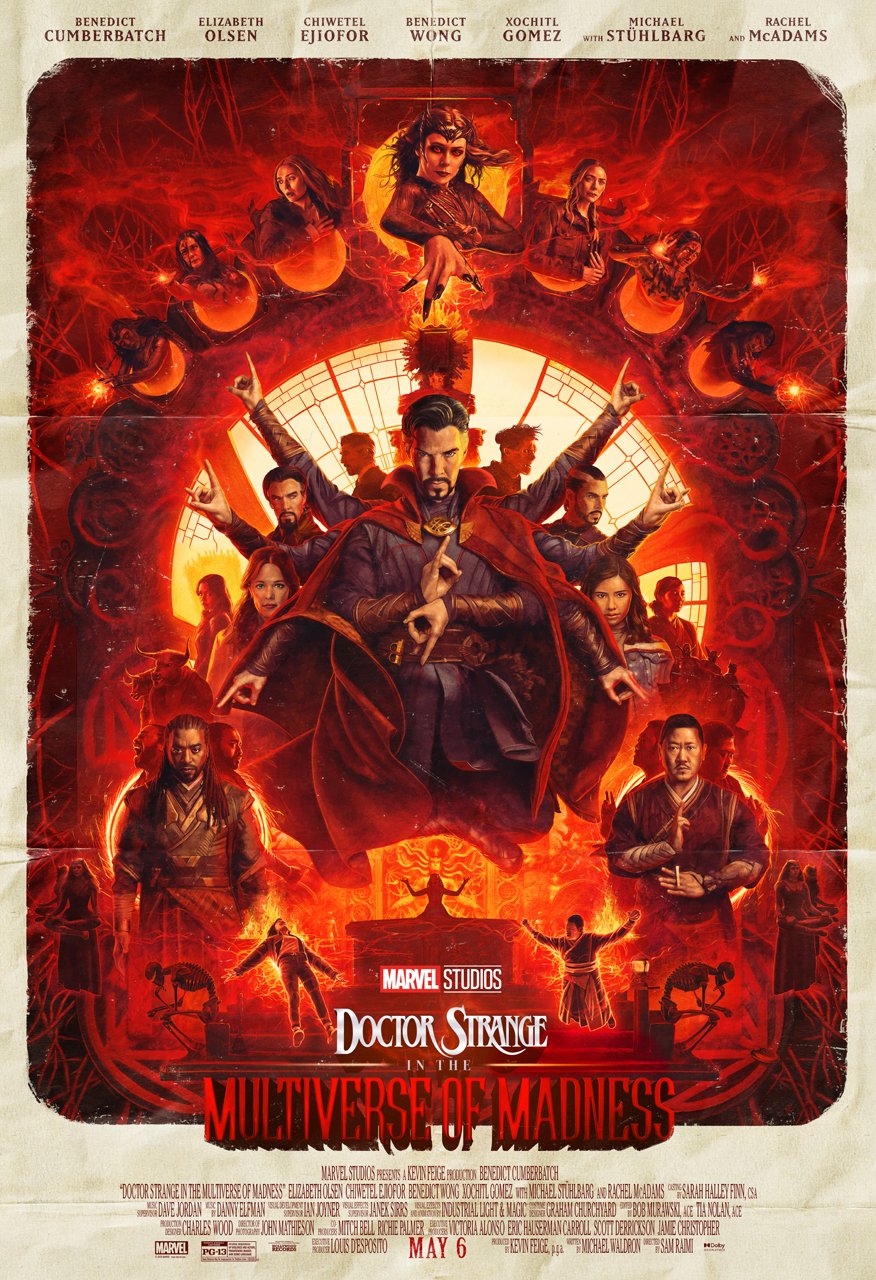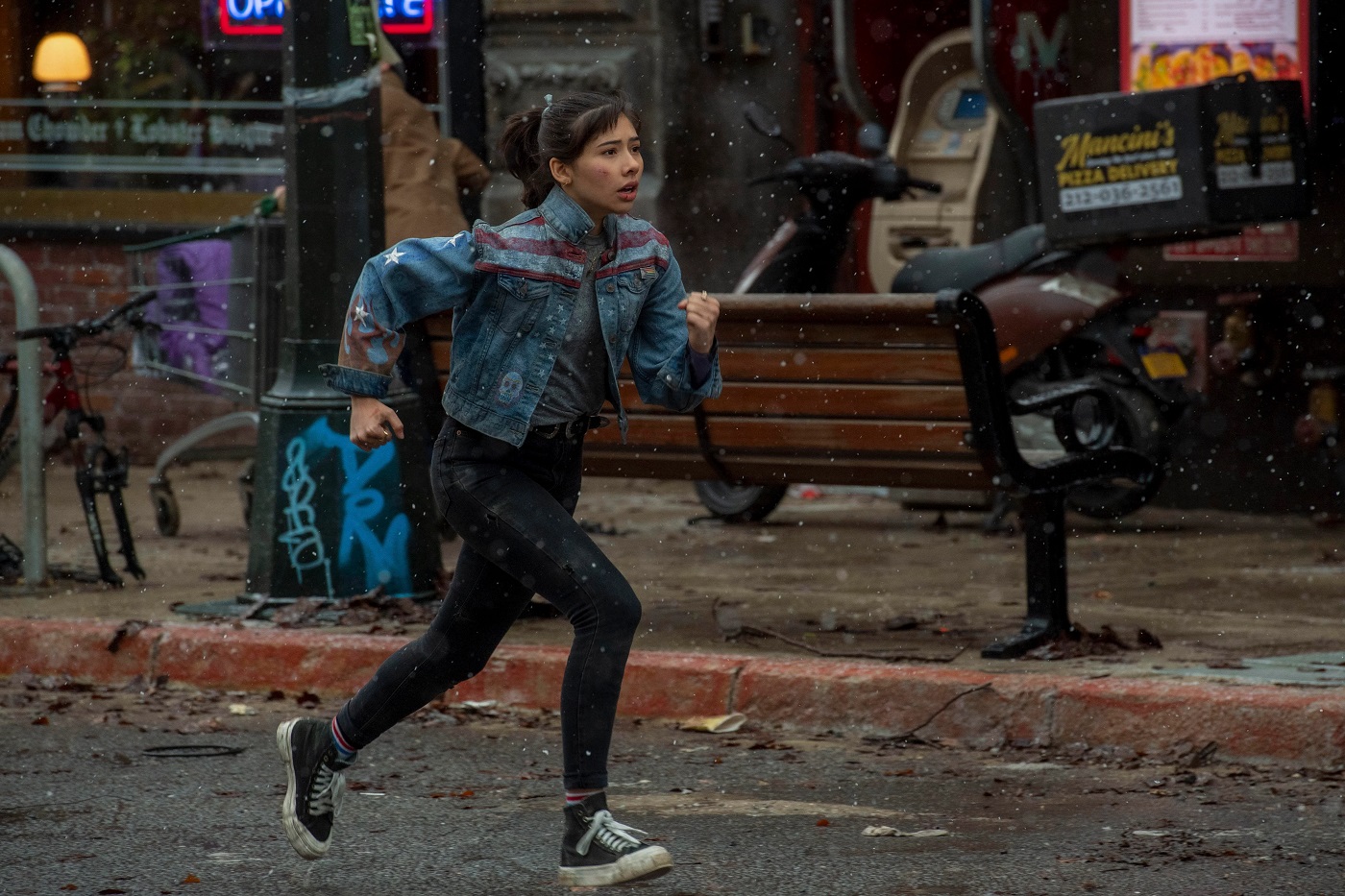An entirely valid criticism of modern blockbuster filmmaking is that it’s all become far too safe, with the desire to keep churning out facsimile franchise fare guaranteed to make big bucks at the box office regularly taking precedence over the desire or ambition to take risks. While the Marvel Cinematic Universe has been complicit at times, nobody’s going to accuse Doctor Strange in the Multiverse of Madness of being a cookie cutter superhero spectacular.
In fact, by the time the credits roll and the lights come up, it’ll seem almost impossible to fathom that Sam Raimi wasn’t the sequel’s original director. However, that’s the glaring issue with Benedict Cumberbatch’s second solo outing at large; Multiverse of Madness is at its best when allowed to be a Sam Raimi movie, but often sags when ticking off the boxes required of an MCU chapter that follows on from Scott Derrickson’s Doctor Strange, WandaVision, Loki, and Spider-Man: No Way Home all at once.
It’s been almost a decade since the brains behind The Evil Dead and Tobey Maguire’s Spider-Man trilogy helmed a feature film, and we’re glad to have him back. Raimi knows comic book adaptations, big budget fantasy, and horror like the back of his hand, and it’s almost as if he’s returned to this particular arena with a point to prove. Nobody moves a camera quite like he does, nor does any mainstream filmmaker have the ability to deliver such a bespoke form of weirdness within the realms of what’s ostensibly a family film, making Multiverse of Madness one of the MCU’s very best on a purely visual level.
The story opens with a bang, as we’re immediately introduced to Xochitl Gomez’s America Chavez, on the run from an inter-dimensional demon with the help of a Stephen Strange variant. After a frenetic action sequence, we’re transported into the current Sacred Timeline, where the real meat of the narrative begins.
Cumberbatch’s former surgeon-turned-superhero is a sad and lonely man, despite the residual fame and adulation that comes with saving the entire universe. He attends the wedding of Rachel McAdams’ Christine Palmer, and just when you think Multiverse of Madness is going to opt for a moment of quiet introspection and genuine character-driven emotion, along comes a gigantic tentacled octopus from another universe to tear the streets of New York to shreds, something the MCU’s residents must be sick and tired of by now.
Long story short, Strange makes an ill-advised visit to Elizabeth Olsen’s Wanda Maximoff for help unraveling the mysteries of the multiverse and keeping America out of danger, but WandaVision fans won’t be surprised to discover that a certain Scarlet Witch has been behind the multiversal machinations all along, seeking to absorb the youngster’s power for herself in order to leave her reality in favor of one where she can be with her twin boys Billy and Tommy.
Gomez described her arc in Doctor Strange 2 as being akin to finding a family, and that’s true to a certain extent when she’s not being used almost exclusively as a MacGuffin to drive things forward. Think of Stephen and Wanda as parents in the midst of a bitter divorce with America at the center, while Benedict Wong’s scene-stealing Sorcerer Supreme is the sassy aunt who disapproves of the interpersonal bickering, and that’s pretty much the central dynamic between the key players in a nutshell.
In theory, the multiverse provides limitless storytelling possibilities, and while we’re treated to several psychedelic trips that pepper the screen with split-seconds of aesthetic brilliance, the ones where the bulk of the plot unfolds aren’t all that different from the MCU’s ground zero. It’s here where Multiverse of Madness struggles, matters that aren’t helped by a screenplay that could generously be described as undercooked. Michael Waldron is the gatekeeper of the concept as the brains behind Loki, too, and while his expansive imagination can’t be faulted, the dialogue could have done with another polish or two in order to prevent the frequent info dumps from growing monotonous.
Thankfully, the cast is stacked top-to-bottom with talented stars making the most of their natural gifts. Cumberbatch brings more humanity and gravitas to the OG Strange than ever before, while he’s having a wonderful time either hamming it up or aiming for pathos as the multitude of variants we meet along the way. As you’d expect, Olsen seamlessly pivots from charismatically sinister to emotionally distraught at the flick of a switch, reminding us why she landed a Golden Globe and Primetime Emmy nomination for WandaVision.
Gomez brings enough energy and exuberance to the table to guarantee America’s place as a regular fixture of the MCU moving forward, while Wong’s dry wit and stoic determination to see things through to the bitter end are only going to increase the calls to give him his own spinoff. That leaves McAdams as the odd one out, but at least she’s given slightly more to do than we was in the first Doctor Strange, which admittedly isn’t saying much.
Audiences going in expecting cameos galore get exactly what the doctor ordered midway through, and if you’ve been keenly avoiding spoilers, then expect the roof to come off when the surprise guests make their appearance.
Again, and this is a minor negative when the scenes in question are undeniably awesome, it doesn’t land anywhere near as well as it’s clearly intended to. It provides an instant sugar rush of fan service that comes off as clunky and hollow once their respective contributions have been explained and you’ve had a moment to let it sink in, while we can guarantee that social media is going to be incredibly polarized over the weekend once the details are out in the open.
In essence, it regularly feels as though a battle was pitched between an unfiltered Raimi film and a standard MCU installment, with the pendulum constantly swinging back and forth from the beginning of Multiverse of Madness right through to the bitter end, but the former just about manages to win the war.
It’s action>exposition>action>exposition on repeat for a shade over two hours, and it does get exhausting at points when you begin to feel the entire thing beginning to creak under its own weight. And yet, it’s hard not to crack a grin when Raimi goes for broke to deliver genuine jump scares, unsettling imagery, an inspired battle that weaponizes musical notes, and a body count that’s shockingly high (and occasionally graphically gruesome) for a Disney-backed effort.
Doctor Strange in the Multiverse of Madness might be the wildest, most deranged entry in the MCU to date, but it still doesn’t feel as though it maximized the limitless potential of its own premise. It’s an LSD trip of a superhero epic, but one packed with leaden exchanges of hokey, expositional dialogue. It’s got several shocking cameos, but they could prove to be divisive. It’s a $200 million mystery wrapped in an enigma dipped in a coat of Disney and Marvel polish, but we can at least be thankful that it’s definitely a Sam Raimi joint.
Good
'Doctor Strange in the Multiverse of Madness' is at its best when Sam Raimi is set loose to incredible effect, but can all too regularly be found creaking under the weight of the MCU machine.

